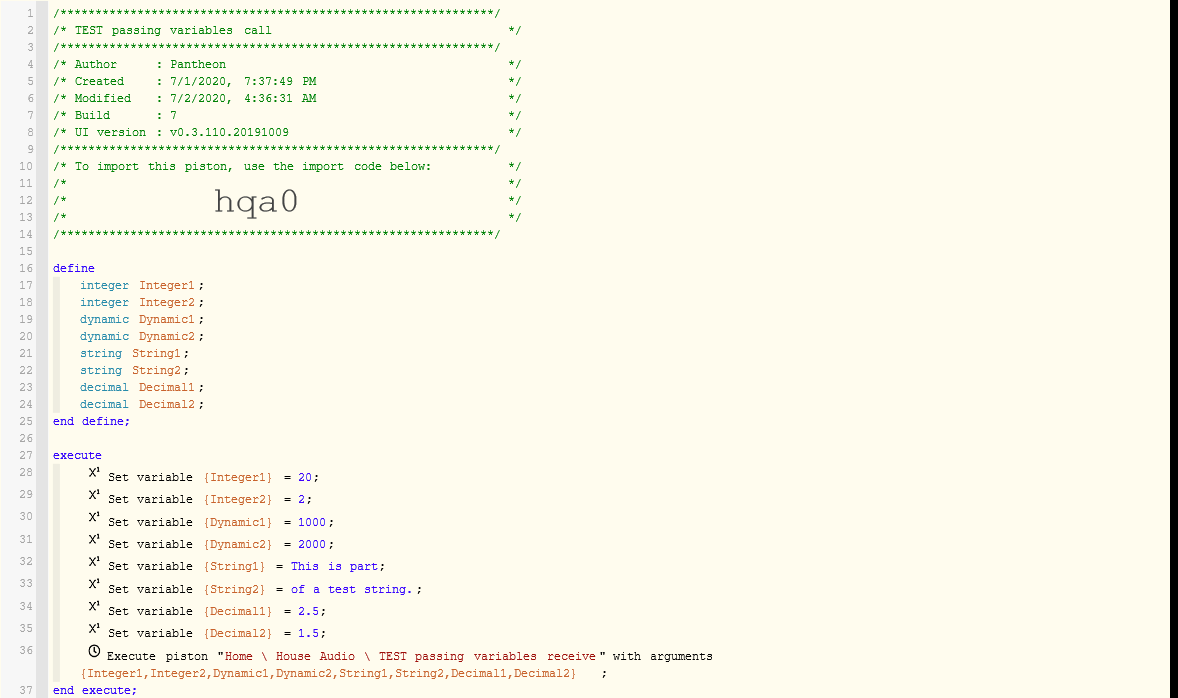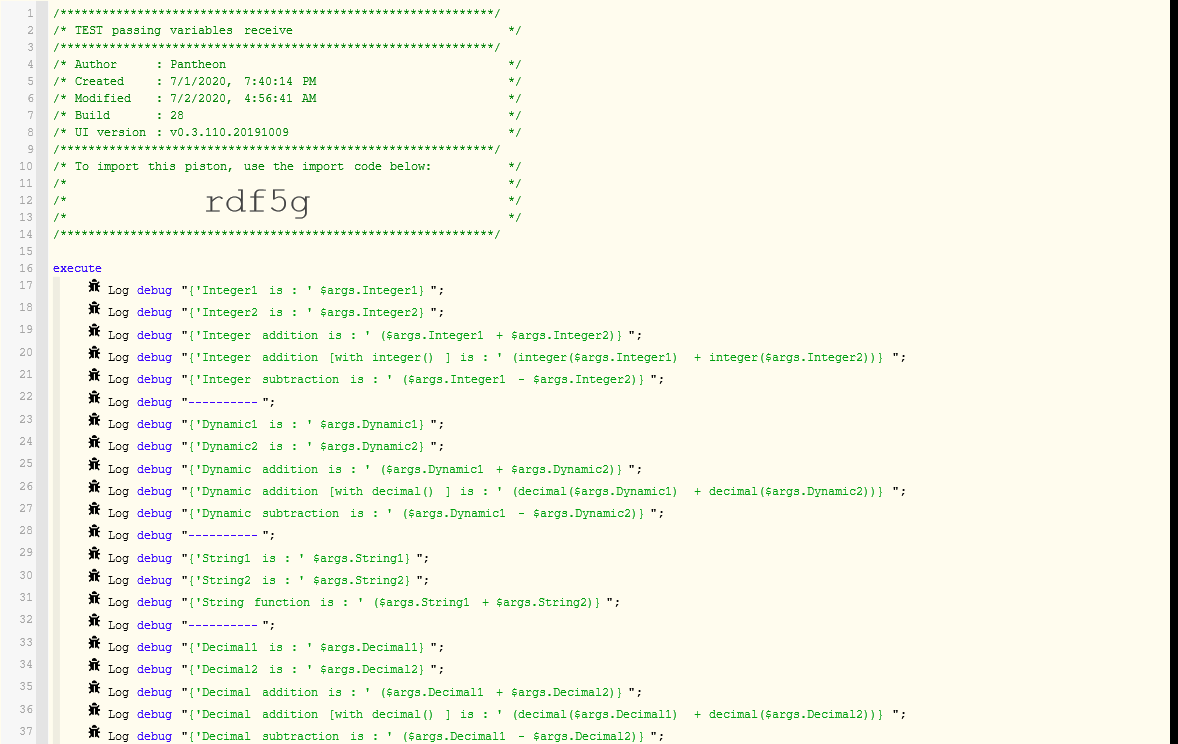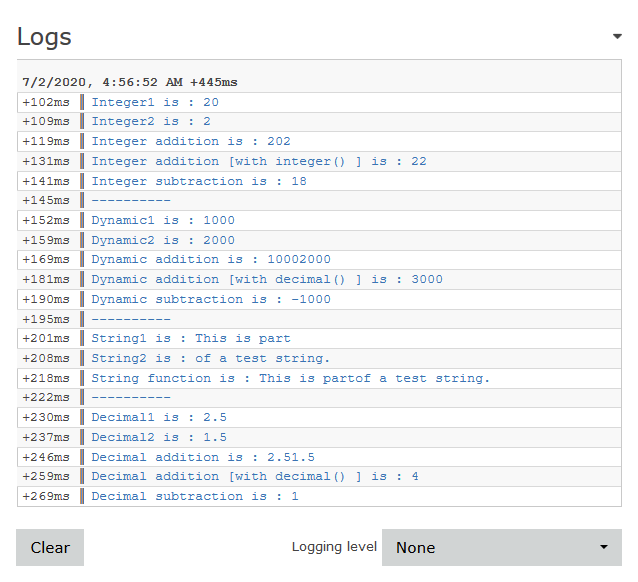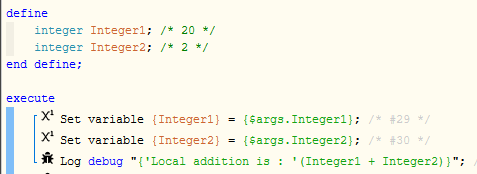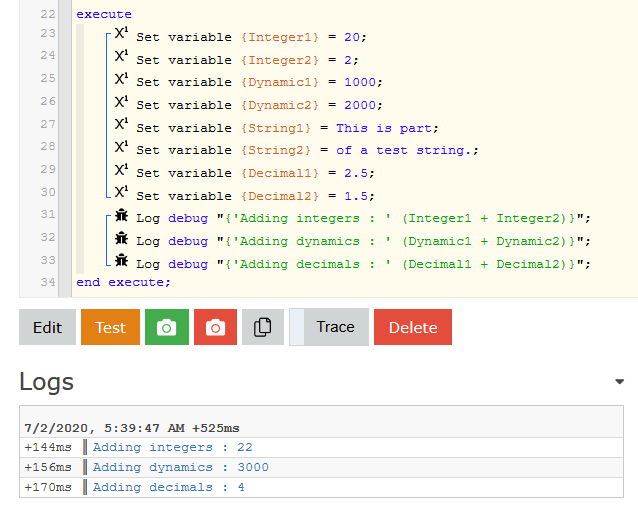1) Give a description of the problem
Just an observation. I dug a little deeper after a discussion with @eibyer here. After a bonehead variable mistake, I began to wonder about functions with passed arguments. My findings may be expected (common knowledge) or just syntax errors. But just basic adding/subtracting passed arguments did not give me the results I had expected. I had to add functions to the addition for correct results. Otherwise, the passed arguments were treated as strings. Subtraction worked correctly.
2) What is the expected behaviour?
I expected the addition and subtraction to work without additional functions.
3) What is happening/not happening?
Addition treated the passed arguments as strings unless a function was used.
Subtraction did not require functions for correct results.
**4) Post a Green Snapshot of the piston![image|45x37]

